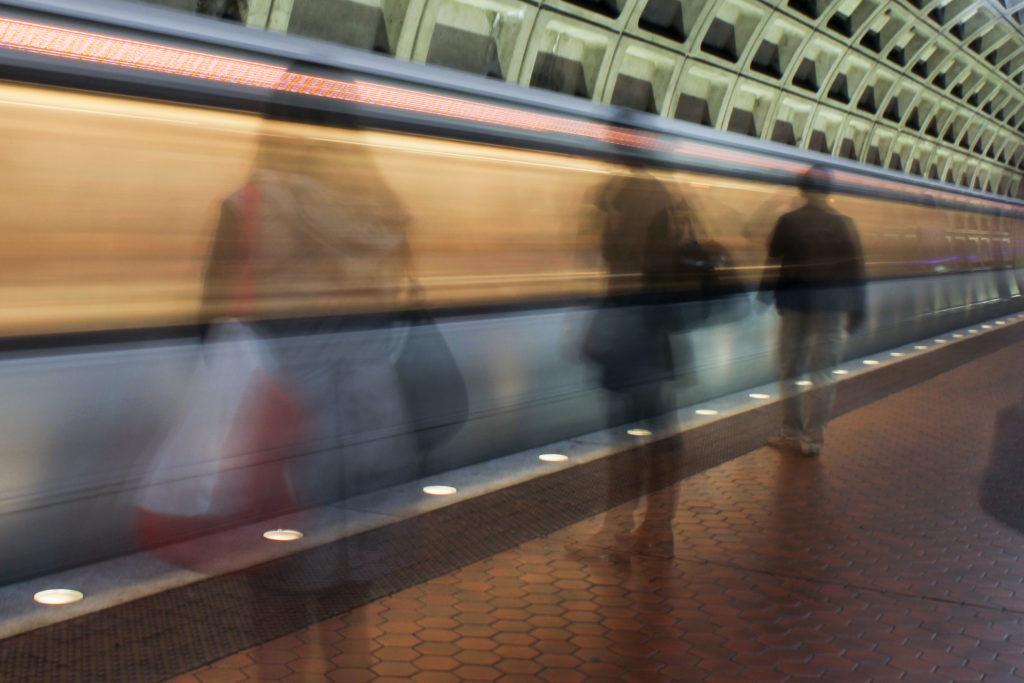Reported cases of upskirting — taking unauthorized pictures underneath a woman’s skirt or dress — in the D.C. area have soared in the past three years.
A team of experts reviewed court records in D.C., Virginia and Maryland, and found cases had jumped 70 percent since 2015, according to a report published late last month by NBC Washington. Advocates said these cases, meant to demean and degrade women – including female students – in public, have become a growing threat with the growth of smart phones and social media.
Many of these cases occur at Metro stations, where women are three times more likely than men to be victims of harassment, according to a 2016 report from the Washington Metropolitan Area Transit Authority – the agency that oversees the Metro.
Claire Gould, the communications director for Collective Action for Safe Spaces, a non-profit organization that works to combat harassment and assault, said harassment occurs most often in crowded areas, like a Metro station or Metro car.
“It’s always frustrating when women, in particular, have to be more careful in order to avoid things like this.”
“It’s demeaning and an invasion of privacy,” Gould said in an email. “Like any kind of public harassment, we believe everyone deserves the right to move through public spaces without fear of being harassed or assaulted.”
Gould said officials should start a public awareness campaign to curb harassment on the Metro, collect data on the number of incidents and train employees and transit police on how to address sexual harassment.
Terri Poore, the policy director for the National Alliance to End Sexual Violence, said upskirting cannot be prevented easily because it occurs in crowded, busy areas — making it difficult to track down perpetrators.
“There is no shortcut around the fact that people are going to have to have courage and stepping in when they see these sorts of behaviors happening and not leave the onus on the victim,” she said. “Really everyone needs to take an active part in preventing this kind of behavior.”
Although upskirting is considered a form of voyeurism, experts said it is difficult to prosecute in D.C. courts. Consent for taking a picture or recording is only required when the individual has a reasonable expectation of privacy according to voyeurism laws in D.C.
In 2014, a D.C. judge dismissed charges against a man accused of taking photos up a woman’s skirt at the Lincoln Memorial, citing that the accuser could not have a reasonable expectation of privacy while on the National Mall, according to a Huffington Post report.
Amanda Lindamood, the director of training and community engagement for the D.C. Rape Crisis Center, said it’s difficult to prosecute upskirting because laws pertaining to sexual assault are relatively new and there is no general consensus about how they can be enforced and adjudicated.
“Every district, or every jurisdiction, approaches legislation related to violence in a very different way and it’s kind of a new category of consent to think about it, again as just not a physical violence, but that it has to do with images, has to do with social media,” Lindamood said. “It’s kind of a very new section of the law we’re playing catch up on.”
Students said upskirting and general street harassment is a constant menance, especially on an urban campus.
Freshman Andie Kemmerle said it’s aggravating that women have to constantly be on alert when riding the Metro.
“It’s always frustrating when women, in particular, have to be more careful in order to avoid things like this,” she said. “Whereas, it should be that people shouldn’t be doing this in the first place, but hopefully people are for their own safety, being careful about their surroundings when they’re in public.”
In February, the advocacy group Collective Action for Safe Spaces launched a petition that has garnered 333 signatures to urge the the D.C. Council to pass a bill to training and educate D.C. employees about sexual harassment.
“What can people do to keep themselves safe when the law doesn’t even know what’s legal and what’s illegal anymore?”
That same month, some students accused construction workers renovating Corcoran Hall of street harassment and catcalling. D.C. businesses have installed street exhibits and initialed training programs in recent months to try to prevent harassment across the city.
Gabrielle Battino, a sophomore, said living on an urban campus in a densely populated city makes sexual harassment more of a concern.
“It sucks that I’m a woman on campus and I don’t feel safe 100 percent of the time and I should because this is my community,” Battino said. “I guess the only thing I can do is be cautious and be an advocate for the issue.”
Tamara Criss, a graduate student in public health, said D.C should criminalize upskirting because it will encourage more victims come forward to report incidents.
“You can only imagine no one is going to report anything if nothing is going to happen. I think that increasing the criminalization of the activity would be smart,” Criss said. “What can people do to keep themselves safe when the law doesn’t even know what’s legal and what’s illegal anymore?”





